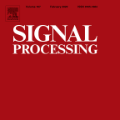In the design of wireless systems, quantization plays a critical role in hardware, which directly affects both area efficiency and energy efficiency. Being an enabling technique, the wide applications of multiple-input multiple-output (MIMO) heavily relies on efficient implementations balancing both performance and complexity. However, most of the existing detectors uniformly quantize all variables, resulting in high redundancy and low flexibility. Requiring both expertise and efforts, an in-depth tailored quantization usually asks for prohibitive costs and is not considered by conventional MIMO detectors. In this paper, a general framework named the automatic hybrid-precision quantization (AHPQ) is proposed with two parts: integral quantization determined by probability density function (PDF), and fractional quantization by deep reinforcement learning (DRL). Being automatic, AHPQ demonstrates high efficiency in figuring out good quantizations for a set of algorithmic parameters. For the approximate message passing (AMP) detector, AHPQ achieves up to $58.7\%$ lower average bitwidth than the unified quantization (UQ) one with almost no performance sacrifice. The feasibility of AHPQ has been verified by implementation with $65$ nm CMOS technology. Compared with its UQ counterpart, AHPQ exhibits $2.97\times$ higher throughput-to-area ratio (TAR) with $19.3\%$ lower energy dissipation. Moreover, by node compression and strength reduction, the AHPQ detector outperforms the state-of-the-art (SOA) in both throughput ($17.92$ Gb/s) and energy efficiency ($7.93$ pJ/b). The proposed AHPQ framework is also applicable for other digital signal processing algorithms.
翻译:在无线系统的设计中,量化在硬件中发挥着关键作用,这直接影响到地区效率和能源效率。作为一种扶持技术,多投入多输出量(MIMO)的广泛应用在很大程度上依赖于高效率的实施,既平衡性能和复杂性。然而,大多数现有探测器统一地量化所有变量,导致大量冗余和低灵活性。需要专门知识和努力,一个深度定制的量化通常需要高压成本,而传统的MIMO探测器不考虑。本文提出了一个称为自动混合精度量(AHPQ)的总框架,其中有两个部分:由概率密度函数(PDFF)决定的综合量化,以及由深度强化学习(DRL)决定的分量化。然而,AHPQQ在确定一套算法的优度方面效率方面效率很高。对于传递的信息(AMP)探测器来说,AHPQ平均比统一石化(UQ)低58.7美元,其中一项几乎没有性能牺牲。


